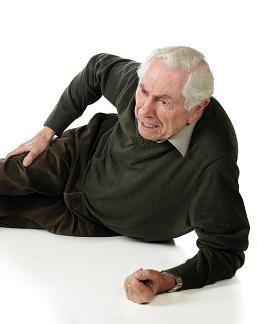Exercise to prevent falls and fractures - ProFouND project

Related topics
Health Health, Demographic Change and Wellbeing Europe in a changing world - Inclusive, innovative and reflective societies Austria Finland Germany Greece Hungary Italy Netherlands Spain Sweden United Kingdom Switzerland Norwaydate: 03/10/2014
Project: the Prevention of Falls Network for Diss...
acronym: ProFouND
See also: CORDIS
Falls are the leading cause of fatal injuries among older people, but experts from across Europe argue they should not just be written off as an unavoidable consequence of ageing.
At the occasion of International Older People’s Day on 1 October ageing experts of the ProFouND network are advising people 60 plus to increase their exercise to reduce the risk of potentially fatal trips and falls.
ProFouND is training exercise coaches across Europe to deliver training in their local regions and extend exercise programmes to reach some 84,000 older people by 2016.
Older people who have a history of falls, take 4 or more medications, who have problems walking, use a walking aid or have conditions such as a previous stroke, Parkinson’s disease, dementia or arthritis are at increased risk of falls.
Fear of falling, problems with continence, poor vision or strength and balance problems also heighten the risk.
Dr Emma Stanmore, from The University of Manchester, said: “The golden rule to prevent falls and strengthen bones is to work on strength and balance. There are a number of options and perhaps Tai Chi exercises are the best known. But exercise programmes like the “Otago” and “Postural Stability” programmes are also widely available.
“We’d usually recommend someone with a history of falls or who has not been very active to visit their GP for prescribed exercises, which can start at their particular level of ability and be built up as they get stronger. This might involve squats to strengthen leg muscles and standing on one leg to practice balancing, with weights being added to improve bone density and muscle retention as they progress. These are things that everyone can do usually in their own home and make a world of difference.”
She continues: “Many people wrongly think that falls are just a part of ageing and something to be expected as you get older but this is not true at all and exercise will make you less likely to fall.”
Professor Chris Todd, overall project leader of the ProFouND network based at The University of Manchester, said: “There is now a strong body of evidence, which shows doing strength and balance exercises can protect against falls. ProFouND is supporting the European Innovation Partnership on Active and Healthy Ageing by making training material available across EU to help reduce the numbers of falls suffered by older people in Europe.
“In the last year we have trained 35 instructors in Europe who will themselves train many more exercise coaches to help older people exercise safely and dramatically reduce their risk of falling. Our instructors are now carrying out work in more European countries working towards an EU standard. Exercise leaflets have been translated into 14 languages with six more languages to go. Together the partnership hopes to make a real difference improving activity levels in later life and keeping people out of hospital for longer.”
